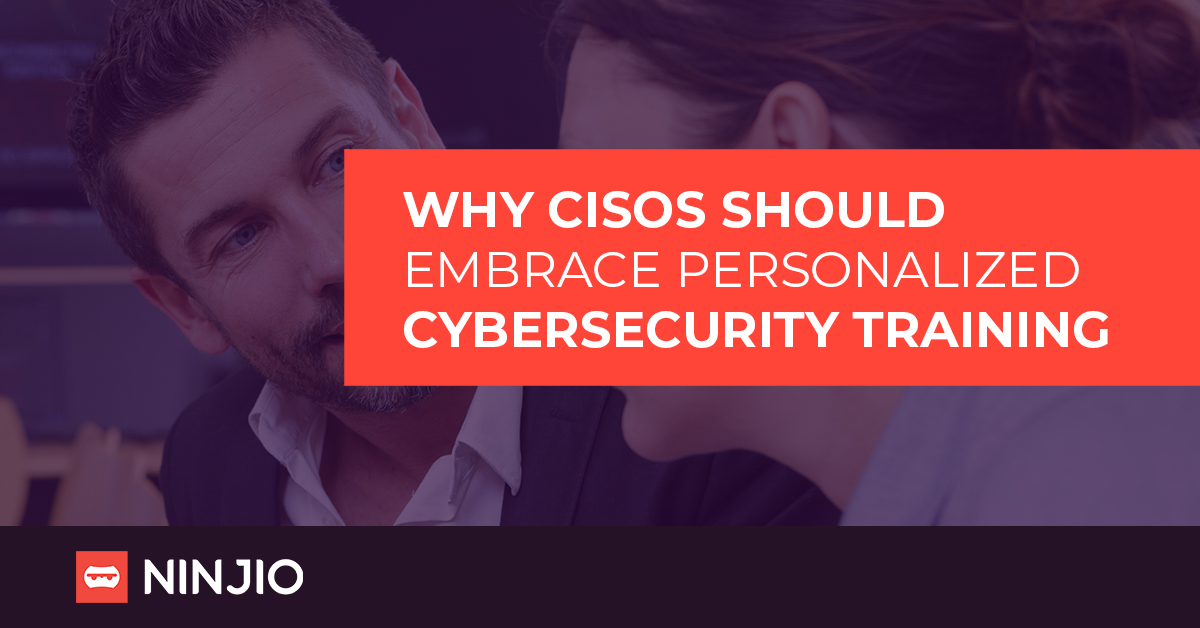
20 Apr Why CISOs should embrace personalized cybersecurity training
Although the adoption of cybersecurity awareness training (CSAT) is growing all the time, CISOs know they still need to make a compelling case for cybersecurity education. They also have to make CSAT programs as effective as possible and demonstrate that employees are learning what they need to know. This will ultimately lead to the creation of a cyber-aware culture, in which cybersecurity is second nature for employees at every level of the company.
To accomplish this goal, CISOs and others who are responsible for administering CSAT programs need to earn buy-in from their colleagues in the leadership team, managers, and employees across departments and teams.
This is where personalized learning comes in: by building CSAT content around each employee’s individual strengths and weaknesses, behavioral patterns, and learning styles, companies will drastically increase the level of engagement with cybersecurity training content and get a clearer idea of how well their workforce is performing. Let’s take a closer look at how personalized CSAT can teach employees critical cybersecurity concepts and facilitate the shift toward a culture of cybersecurity.
Personalized CSAT is customized for each employee. This means the training program is relevant to their individual roles and responsibilities; built around their specific knowledge bases, habits, and learning styles; and designed to address what they’re doing wrong and reinforce what they’re doing right. Unlike one-size-fits-all cybersecurity training, personalized CSAT uses tailored engagement strategies and behavioral interventions to target areas where employees need the most assistance and gives them compelling content that will keep them focused.
CISOs and other company leaders can use personalized CSAT to keep track of employee performance. Personalized learning identifies which aspects of an employee’s behavior are putting the company at risk, and companies can use assessments (such as phishing tests) to determine whether employees are showing improvement over time. This will help CISOs and their colleagues hold themselves accountable and adjust their cybersecurity strategy as needed.
Finally, personalized learning will help companies develop a culture of cybersecurity. When educational interventions focus on employees’ unique needs and skills, they secure sustainable behavioral change. As healthy cybersecurity behavior becomes increasingly natural and CSAT becomes an integral part of employees’ working lives, a culture of cyber-awareness will emerge. This creates robust and distributed defenses against rapidly evolving cyberthreats – defenses that will only get stronger as employees continue to learn and practice.
